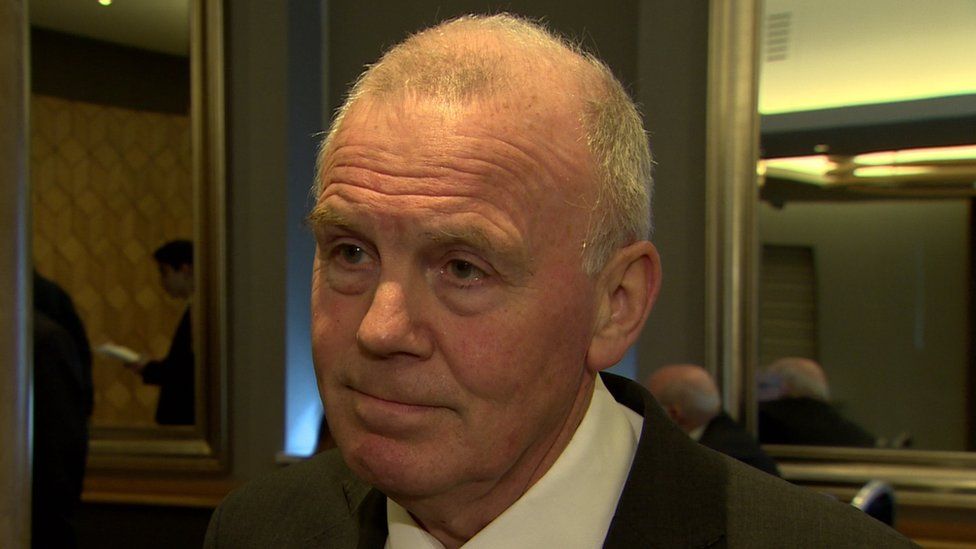PUP manifesto: Kyle says DUP and Sinn Féin 'involved in cultural war'
- Published

Dr John Kyle said crucial issues were being ignored by the DUP and Sinn Féin
The Progressive Unionist Party has accused the DUP and Sinn Féin of engaging in a "cultural war" instead of dealing with "crucial social economic issues".
It also criticised those parties engaging in "fear tactics" at a time when it says the union is safe.
The party launched its assembly election manifesto on Tuesday.
Deputy leader Dr John Kyle said Stormont had become "dysfunctional".
He added: "They are not tackling the real issues, the crisis in the health service, problems in the education system, housing waiting lists are increasing.
"A lot of those crucial social and economic issues are not being dealt with because of playing party politics and we have now retreated into a cultural war between the two largest parties."
Dr Kyle, who is one of three PUP candidates standing in the election, also questioned the tactics being used by the DUP.
"To frighten people into feeling that if you don't vote in a certain way, then we will end up in a united Ireland is frankly dishonest," he said.
Billy Hutchinson said Northern Ireland's "journey has to be about facing the future and not the past".
The manifesto - entitled Country Before Party - sets out the PUP's six commitments across health, education, the economy and housing.
They include reducing the suicide rate to zero through crisis intervention, ending the educational underachievement in working class areas, increase support for start up businesses and renewing town and city centres.
In his message, PUP leader Billy Hutchinson said the party was "born out of a determination of loyalist leaders in Long Kesh to move away from the futility of conflict".
He added Northern Ireland's "journey has to be about facing the future and not the past".
But the deputy leader said he was concerned smaller parties would suffer most in a shrinking Stormont.
"People think that to reduce the number of MLAs cuts the expense that's involved at Stormont, but the fewer MLAs the less the smaller groups are represented or heard, so that is detrimental to a healthy society, " Dr Kyle said.